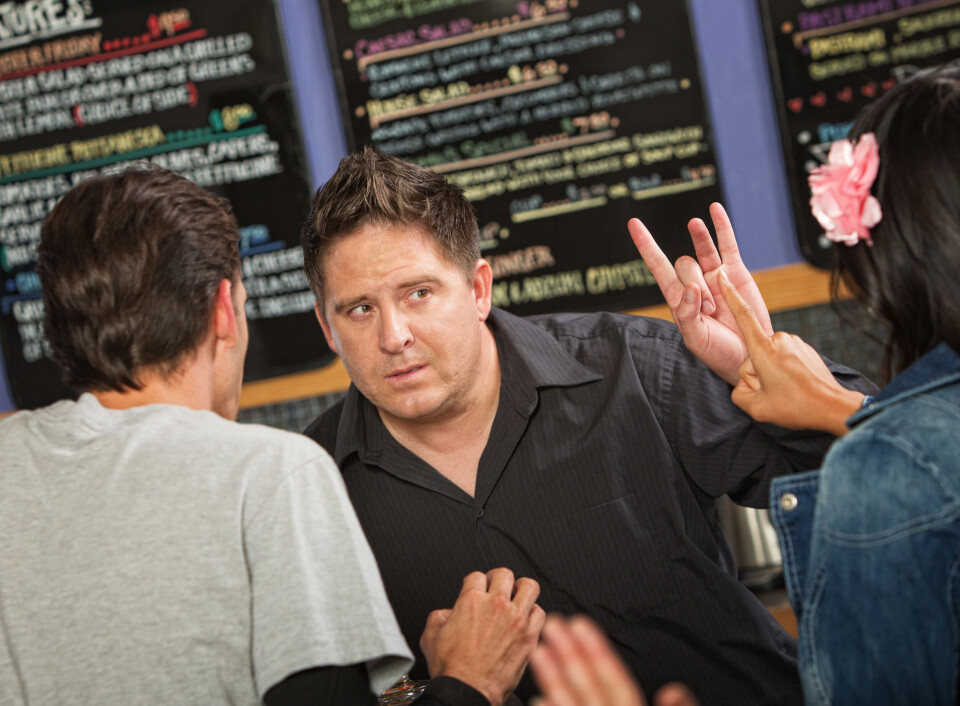-
Dangerous liaisons: how to avoid misunderstandings in French speech
Know when to 'drop a vowel' or add an apostrophe to streamline your speech and improve pronunciation
-
Helpful vocabulary for making medical appointments
Make sure you are ready to fill any 'créneau' that becomes available
-
The origins and meaning of passer du coq à l'âne
It literally translates as: to pass from the rooster to the donkey
Five steps to interact better with people in French
Conversing in a foreign language can be stressful, especially with a muttering queue growing behind you - these tips can help

In language teaching, students learn four core skills: speaking, writing, reading and listening.
I believe a fifth skill is more important than any of these: the ability to interact with other people.
It is relatively easy to read French because you can usually take time to mull over the words and you can always consult a dictionary.
Writing is also much simpler these days because there are excellent online translation tools to help you.
Listening can be tricky to master but if you can set the conditions – such as playing a recording over and over – it is just a question of practice before you get the gist.
Speaking demands more effort but in many contexts you can prepare for it and even rehearse.
Read more: Immersion in French language is stressful but leads to huge confidence
Interacting is something else
This is language used for dealing with people orally, in the moment and in live situations, with no help to hand.
I do not mean when you can get away with nods and grunts, such as at the supermarket checkout.
I mean when you find yourself in a doctor’s surgery or a bureaucrat’s office, or trying to convince your bank manager to lend you money, or something as simple as sending a letter by recorded delivery.
In the worst cases, there will be a queue behind you of people quietly muttering about how “they come over here and they don’t even speak the language”.
Read more: Speak French with an accent? Use it to your advantage
Five steps that will help
You cannot do much to prepare because you cannot anticipate how things will play out.
However, there are certain ways you can make it easier for yourself, whatever your ability in French.
1. Breathe, and remember that you have as much right to understand and be understood as anyone.
2. Make sure you are fully present in your mind and not wishing you were somewhere else.
3. Be aware that communication is a lot more than getting the words right. Body and facial language are key. Smile; make eye contact; look open – don’t cross your arms and huff.
4. Interaction involves establishing a rapport and, to do that, you need the fourth strategy: think more about the other person than yourself.
You are in this scene together and it might be just as painful for them as it is for you.
They may be tired or stressed, or generally having a bad day. They might have a backlog of work to deal with.
If this is the case, a bolshie foreigner is all they need. Say something nice and it can dissolve many difficulties.
Ask an interested question and you will be amazed how defences suddenly come down.
Better still, make a joke at your expense: admit to being a bumbling foreigner and nine times out of 10 they will take pity on you and do their best to help.
5. Use the language you have to the best effect. Speak slowly and clearly. Repeat the essential information if necessary and ask them to do the same.
People will do their best to help
All this comes down to the same thing: don’t hold back and expect them to do the work.
Make an effort, and go the extra mile.
I can assure you from long experience that most people will do their very best to help if you demonstrate you are doing all you can.
With luck, you will get your stamps, or your loan, or your appointment, and learn a bit more of the French language at the same time.
Related articles
Try these 17 French expressions to help improve your language skills
























